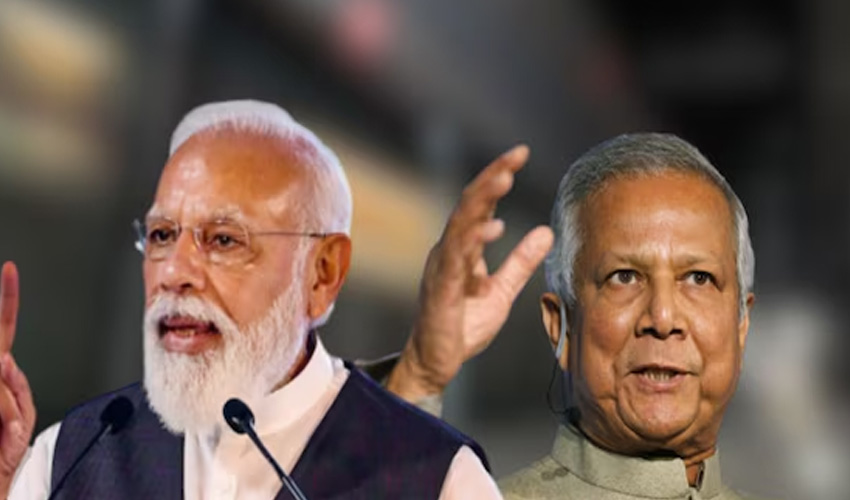Nobel laureate and Bangladesh’s interim leader Muhammad Yunus called for national unity to counter what he described as "Indian aggression," after New Delhi’s criticism of his administration's handling of violence against minority Hindus.
Yunus, who heads a caretaker government tasked with enacting democratic reforms after the ouster of long-time premier Sheikh Hasina, urged political factions to set aside their differences in the interest of the country’s sovereignty.
"They are undermining our efforts to build a new Bangladesh and are spreading fictitious stories," Yunus told a gathering of political leaders in Dhaka.
"This is a question of our existence, and we must stand united against disinformation."
India-Bangladesh relations fractured
Tensions between the neighbours have escalated since August, when a student-led uprising ended Hasina’s 15-year rule. India, a key ally of Hasina and her host during her years in exile, has accused Yunus’s administration of failing to protect Hindu minorities, alleging targeted attacks in the political unrest following Hasina’s ouster.
Yunus’s administration has condemned these attacks but attributed many of them to political motives rather than religious animosity. Officials have also accused India of exaggerating the scale of violence and running a "propaganda campaign" to discredit the interim government.
"The reports being circulated are part of an effort to harm our international standing," Yunus stated, highlighting what he described as coordinated attempts to influence global opinion against Bangladesh.
Protests against India intensify
In the wake of these tensions, anti-India demonstrations have gained momentum across Bangladesh. Protesters have denounced what they perceive as Indian interference in domestic affairs. On Wednesday, several rallies were staged following an incident earlier in the week where Hindu activists reportedly attempted to storm a Bangladeshi consulate in a nearby Indian border city.
India condemned the breach, arresting seven individuals involved, while Bangladeshi officials labelled the act "provocative."
Wednesday’s meeting with political leaders, described by Yunus’s media team as part of a broader initiative to foster unity, came a day after the interim leader held discussions with student activists. Both meetings aimed to build consensus amidst growing domestic and international pressures.
Yunus, who took charge under a caretaker administration to pave the way for free and fair elections, reiterated his government’s commitment to protecting minority communities. However, he also warned against external narratives that, he claimed, sought to destabilize Bangladesh.



























